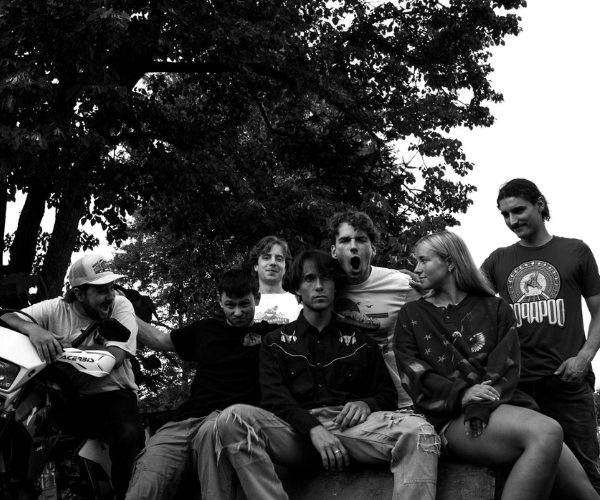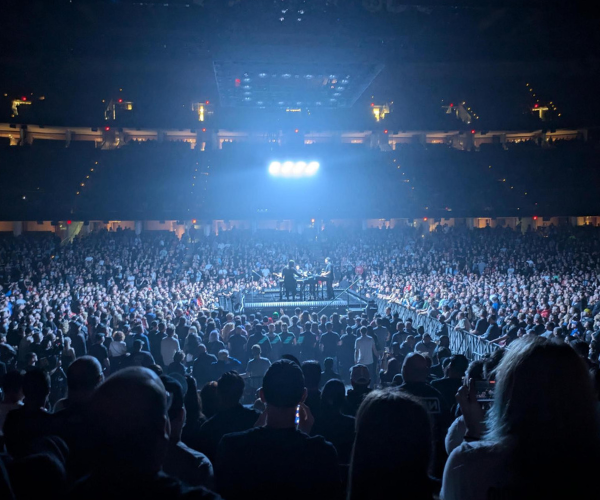Shaker Heights native Austin Willacy speaks nostalgically about childhood bike rides, block parties, archery practice and barbecues. “Most artists prefer to say that they had tortured childhoods, but I had a pretty good one,” says the successful musician, adding that he is still close friends with people he’s known since he was 12 years old.
Willacy left the safe haven of suburban Cleveland in 1987 to attend Dartmouth College and become a lawyer like his parents, siblings and several relatives.
“The plan was I would go to college, then law school, then move back to Cleveland to take over my dad’s law practice. At the age of 27 or 28, I’d basically know what the rest of my life was going to look like.”
But the idea of a cookie-cutter life soon began to feel “horrifying,” he says.
So after graduating with a psychology degree, he left for California to pursue his dream of becoming a musician. “My parents were not thrilled at the idea,” Willacy laughs. “They said, ‘You know, we wouldn’t have needed to spend this amount of money on your education if we’d known that you were going into music!’ ”
To their delight, however, Willacy’s career has been a success: He’s performed at prestigious venues such as Carnegie Hall, sharing the stage with the likes of James Brown, the Pointer Sisters and LL Cool J. He’s been featured live on radio and television stations from ABC to the BBC and CBS to CNN; he’s the voice on the popular video games Karaoke Revolution and Guitar Hero, singing covers of Queen, Patsy Cline and Toby Keith; and he’s got a fan base of notables, including Bill Clinton and Rick Dees.
With tunes ranging from RandB to bluegrass and hard rock to folk, Willacy is characteristically tough to pin down — and he likes it that way. Maintaining an eclectic repertoire, he explains, prevents him from being stuck in one genre: “You see a black face, and if there are dreads attached, the record company will say, ‘You can do rap, reggae or RandB.’ That’s the divide. Whenever you see a black guy playing guitar, you have to assume he’s playing reggae or blues.” Or, he adds laughing, “that he’s hoping someone will bump off Lenny Kravitz.”
Considering that his musical inspiration spans from Nirvana to Stevie Wonder to Jimi Hendrix, many people are initially confused by Willacy’s sound. “Given how stark the lines are around the bounded regions of ‘black music’ and ‘white music,’ ” he reflects, “being in the middle, or crossing back and forth, can be a very dicey proposition.” And yet, he argues, rock music was conceived by artists such as Little Richard and Chuck Berry, only to be usurped by musicians such as Elvis Presley and The Beatles — suddenly branding the genre “white” in most people’s minds.
“The Beatles knew all about the roots of music,” Willacy emphasizes. “Their favorite recordings were bootleg recordings of black artists singing blues and RandB. But soon you got groups inspired by The Beatles who didn’t listen to the music that inspired The Beatles. You got people who were clueless about the origins.”
Though racial politics are not at the forefront of Willacy’s message — his songs are typically about love relationships — Willacy takes pride in breaking stereotypes and causing people to question their assumptions.
On the pragmatic level, making people do a double-take has worked to Willacy’s advantage: seven albums and a three-year Warner Brothers stint after launching a professional music career in 1991. He is going strong, releasing two albums last month, one with his solo band (“9 Impossible Proofs”) and one with his a cappella group, The House Jacks (“Get Down Mr. President”). His national tour — which includes gigs with The House Jacks and solo — stops here for a solo performance Nov. 18 at Wilbert’s. Check out the local lineup at www.austinwillacy.com.



